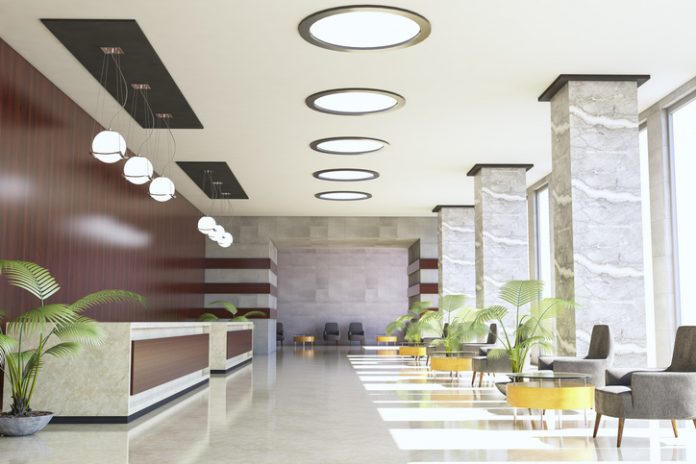Hotel buildings are rarely—if ever—unoccupied, and closure is unfamiliar territory for many hotel owners. Yet, more hotels are closing their doors indefinitely each day as the COVID-19 pandemic continues. Hotel owners and facilities managers need to prepare and operate successfully while guests are not on the premises. Proper operations can ensure a smooth reopening when the time is right.
There are short- and long-term solutions hotels can implement, as Matt Ganser, executive vice president of engineering and technology for Carbon Lighthouse, explains. One of the first steps hotel owners should take to prepare for closure is to get command of the building, meaning having remote access to the building management system. Ganser says hotel owners should be “going to their control provider or vendor to ensure the local software is installed in such that they have the capability inside the network. Another problem that can come up in buildings, whether it’s a small mom-and-pop bodega or a fancy luxury resort, is IT security has made remote access impossible. Make sure the providers are all on the same page so that IT doesn’t stand in the way of remote access.”
Once they have gained remote access, hotel owners can also prepare for closure by ensuring “that your building management system has some amount of data trending capability or at least the right data points are available to you in a remote fashion,” Ganser says. “Depending on the extent of the building management system, you can expand its capability, which gives you a better sense of what’s going on across a large facility with pretty minor capital-output.”
Ganser adds that long-term, hotel buildings can start moving toward complex control sequences to make the building more adaptive. “Unfortunately, a lot of buildings are not set up such that they run at a static point rather than a dynamic set point,” Ganser says. “Ideally, buildings are tuned and operated to react to ambient load, occupancy, headcount, guest load, but sometimes, they aren’t for a number of reasons. This could be the time to consider upgrading those sequences to ensure you’re not running the building at a high-occupancy position.”
These preparations are not difficult or expensive to implement, and Ganser says, “What’s interesting is in the world of efficiency, a lot of this stuff already exists. That gets to the question about why this stuff hasn’t been done on a normal basis.”
A silver lining that Ganser notes is that hotel owners can complete building upgrades that might have been delayed due to high occupancy. He says, “If hotels are not generating revenue from guests, that means they’re unoccupied. What is neat about that is it allows you to do some advanced upgrades that may require opening walls or ceilings. It allows you to do more advanced functional tests and install and implement more advanced control sequences because you don’t have the pressure of ensuring that guest comfort is absolutely maintained.”
While operating in this way might be new to hotel owners and facilities managers, commercial buildings do this every day, Ganser says. “To some degree, this happens every day with commercial office buildings because, ideally, most buildings are shut down every single night, and then they restart every single morning. What might be very new to a hotel is actually just the normal day-to-day experience of your average office building.”
“This situation highlights some of where the building environment infrastructure is lacking,” Ganser adds. “Most people are under this assumption that buildings are these amazing implemented ecosystems, but they are not. Building management systems are not widespread. In our experience, about 15 percent of buildings even have a building management system, and it’s less than half of those buildings where you can remotely operate. These are things that should have been done years ago. It’s a matter of normal course.”











